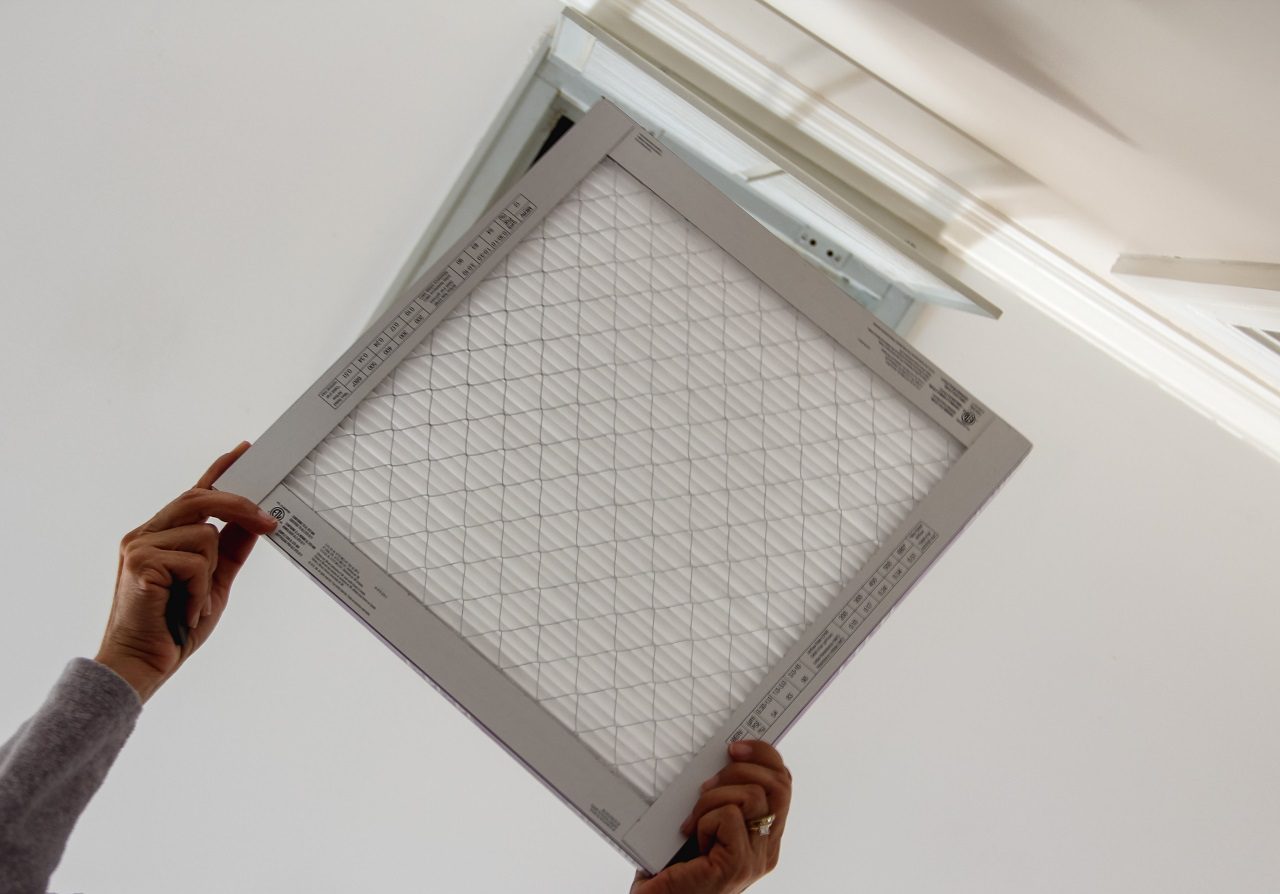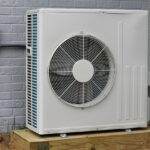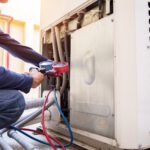
The air filter in your HVAC system plays a critical role in maintaining the air quality in your home. It traps dust, pollen, and other particles, ensuring that the air you breathe is clean and healthy. Selecting the right air filter is crucial to the performance of your HVAC system and the quality of the air inside your home. At Turner On Services, we know that understanding different air filters and how they function can help you make better choices for your home’s comfort and health.
There are various types of air filters, each designed to meet different needs and preferences. The right filter can improve your indoor air quality, reduce allergens, and enhance the efficiency of your HVAC system. Knowing the performance ratings and considering factors like size, material, and your home’s specific requirements will allow you to choose an air filter that provides the best results.
Proper maintenance of your air filter is equally important. Regular inspection and replacement ensure that your HVAC system runs efficiently and lasts longer. In this guide, we’ll dive into the different types of air filters, their performance ratings, important factors to consider when selecting one, and tips to keep your air filter in excellent working condition.
Understanding Different Types of Air Filters
Air filters play a crucial role in maintaining indoor air quality and ensuring your HVAC system operates efficiently. There are several types of air filters available, each designed to meet different needs. Understanding these types helps in making the right choice for your home.
1. Fiberglass Filters: These are the most basic type of filter. They are inexpensive and disposable, capturing large particles like dust and lint. However, they are not very effective at filtering smaller particles like pollen or mold spores.
2. Pleated Filters: These filters have folds or pleats that increase their surface area, allowing them to capture smaller particles more effectively than fiberglass filters. They are a bit more expensive but offer better filtration for allergens and pollutants.
3. HEPA Filters: High-Efficiency Particulate Air (HEPA) filters are known for their superior ability to trap airborne particles. They are often used in environments requiring high levels of cleanliness, such as hospitals. While they provide excellent filtration, they can restrict airflow if not suited to your HVAC system.
4. Washable Filters: These filters can be washed and reused, making them an eco-friendly option. They typically last longer than disposable filters but require regular maintenance to ensure they remain effective.
How Air Filter Ratings Affect Performance
Air filters come with different ratings that indicate their effectiveness in trapping particles. Understanding these ratings helps you choose a filter that meets your specific needs for air quality and system efficiency.
1. MERV Rating: The Minimum Efficiency Reporting Value (MERV) rating ranges from 1 to 16. A higher MERV rating means the filter can trap smaller particles. For example, a filter with a MERV rating of 8 can capture dust, pollen, and mold spores, while a filter with a MERV rating of 13 can also capture bacteria and smoke particles.
2. HEPA Certification: HEPA filters have their own certification, indicating they can remove 99.97% of airborne particles that are 0.3 microns or larger. These filters provide the highest level of filtration but may not be necessary for all homes.
3. CADR Rating: The Clean Air Delivery Rate (CADR) rating measures how quickly an air filter can clean the air in a room. This rating is crucial if you are using a portable air purifier in conjunction with your HVAC system.
4. ACH Rating: The Air Changes per Hour (ACH) rating indicates how many times the air in a room is filtered each hour. A higher ACH rating means improved air quality, which is essential for homes with severe allergies or respiratory issues.
By understanding these ratings, we can make informed choices about which air filter will best suit our home and improve our indoor air quality. Choosing the right filter ensures we breathe cleaner air and maintain an efficient HVAC system.
Benefits of Upgrading Your Home’s Electrical System
Upgrading your home’s electrical system comes with numerous benefits that enhance both safety and convenience. One of the primary advantages is improved safety. Modern electrical systems are designed to meet current safety standards, reducing the risk of electrical fires, shocks, and other hazards. An updated system can handle the higher electrical demands of today’s appliances and technologies, ensuring your home operates safely and efficiently.
Another benefit is the increased capacity for power. Modern homes often require more power to support multiple devices, smart home gadgets, and larger appliances. Upgrading your electrical system allows you to meet these demands without overloading your circuits, preventing frequent breaker trips and power outages. Additionally, a modern system can accommodate future upgrades, making it easier to add new devices or appliances as needed.
Steps to Take When Planning an Electrical System Upgrade
Planning an electrical system upgrade involves several important steps to ensure a successful and safe transition. The first step is to assess your current electrical system. Look at your home’s wiring, outlets, and circuit breaker panel to identify specific areas that need attention. This initial assessment helps you understand the scope of the upgrade and guides you in prioritizing the most critical issues.
Next, consult with a professional electrician to discuss your findings and get expert advice on the best course of action. A licensed electrician can provide a detailed inspection, pinpoint any hidden problems, and recommend the most effective solutions. They can also help you plan for the future, ensuring your new system can handle additional power needs as your home and technology evolve.
Conclusion
Upgrading your home’s electrical system is an essential step to ensure safety, reliability, and efficiency in meeting today’s demands. Recognizing the signs of an outdated system and understanding the common problems that indicate an upgrade will help you take proactive measures. Modernizing your electrical infrastructure not only improves safety but also enhances your home’s capacity to handle current and future electrical needs.
At Turner On Services, we are dedicated to helping you create a safer and more efficient home with cutting-edge electrical solutions. Whether you need a thorough assessment, expert advice, or professional installation, we’re here to support you every step of the way. If you’re considering an electrical service upgrade, contact Turner On Services today to ensure your home is ready for the future.







No comment yet, add your voice below!